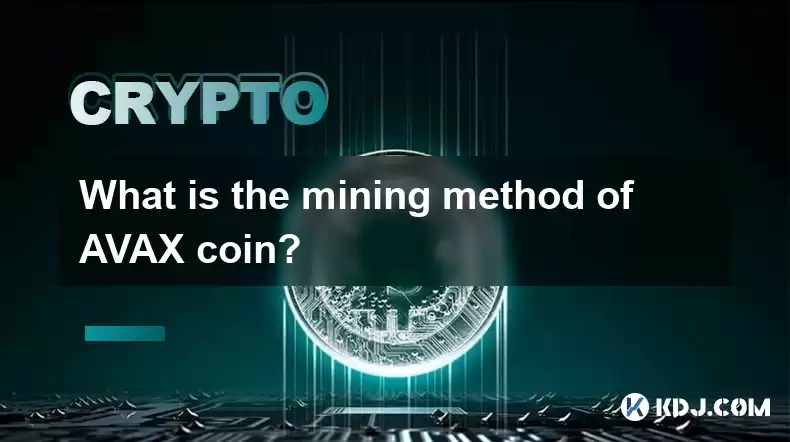-
 Bitcoin
Bitcoin $119600
0.72% -
 Ethereum
Ethereum $4175
-0.54% -
 XRP
XRP $3.207
0.44% -
 Tether USDt
Tether USDt $0.9997
-0.03% -
 BNB
BNB $795.8
-0.80% -
 Solana
Solana $178.4
-0.74% -
 USDC
USDC $0.9998
-0.01% -
 Dogecoin
Dogecoin $0.2273
-2.09% -
 TRON
TRON $0.3405
-0.28% -
 Cardano
Cardano $0.7864
-0.90% -
 Hyperliquid
Hyperliquid $44.43
1.35% -
 Chainlink
Chainlink $21.29
-0.96% -
 Stellar
Stellar $0.4411
0.55% -
 Sui
Sui $3.715
-2.92% -
 Bitcoin Cash
Bitcoin Cash $583.0
2.23% -
 Hedera
Hedera $0.2521
-2.12% -
 Ethena USDe
Ethena USDe $1.000
-0.05% -
 Avalanche
Avalanche $23.18
-1.96% -
 Litecoin
Litecoin $125.0
2.79% -
 Toncoin
Toncoin $3.311
-0.44% -
 UNUS SED LEO
UNUS SED LEO $8.996
-0.53% -
 Shiba Inu
Shiba Inu $0.00001305
-2.49% -
 Uniswap
Uniswap $10.60
-0.11% -
 Polkadot
Polkadot $3.910
-2.51% -
 Dai
Dai $0.9999
-0.03% -
 Cronos
Cronos $0.1640
2.00% -
 Ethena
Ethena $0.7932
4.93% -
 Bitget Token
Bitget Token $4.371
-1.10% -
 Monero
Monero $267.2
-1.09% -
 Pepe
Pepe $0.00001154
-3.46%
What is the mining method of AVAX coin?
Avalanche (AVAX) secures its network through staking, not mining like Bitcoin. Validators earn rewards by contributing to transaction validation using Avalanche consensus, a faster, more energy-efficient process than Proof-of-Work. Staking options range from running a full node to delegating to a validator, each with varying technical requirements and risk levels.
Mar 12, 2025 at 10:40 pm

Key Points:
- Avalanche (AVAX) uses a novel consensus mechanism called Avalanche consensus, differing significantly from Proof-of-Work (PoW) used by Bitcoin.
- Mining AVAX isn't like mining Bitcoin; it involves validating transactions and contributing to the network's security through staking rather than solving complex computational problems.
- There are multiple ways to participate in AVAX validation and earn rewards, catering to different levels of technical expertise and capital investment.
- Understanding the risks associated with staking and validator responsibilities is crucial before participation.
- The reward structure is dynamic and influenced by network participation and inflation.
What is the mining method of AVAX coin?
The term "mining" in the context of Avalanche (AVAX) is misleading. Unlike Bitcoin's Proof-of-Work (PoW) system where miners solve complex mathematical problems to validate transactions and earn Bitcoin, Avalanche utilizes a unique consensus mechanism called Avalanche consensus. This consensus mechanism relies on a process more akin to "staking" than traditional mining. Instead of intense computational power, validators secure the network by staking their AVAX tokens.
Avalanche's consensus mechanism is designed for speed and scalability. It achieves this by using a sub-sampling technique, allowing for rapid transaction validation without requiring all nodes to participate in every transaction verification. This is a key differentiator from many other blockchain networks. It allows for significantly faster transaction speeds and lower fees compared to PoW systems.
How does staking work in the Avalanche network?
Staking on Avalanche involves locking up your AVAX tokens to become a validator or delegate your tokens to a validator. Validators are responsible for proposing and verifying transactions on the network. By staking, you contribute to the network's security and are rewarded with newly minted AVAX and transaction fees. The more AVAX you stake, the greater your chances of being selected to validate transactions and the higher your potential rewards.
There are several ways to participate in the Avalanche network through staking:
- Becoming a Validator: This requires running a full node and meeting specific technical requirements. It's more demanding but offers higher potential rewards.
- Delegating to a Validator: This is a less technically demanding option. You delegate your AVAX to an existing validator, sharing in the rewards they earn. This is a good entry point for those who want to participate without running a node.
- Using a Staking Pool: Staking pools combine the AVAX of multiple users, increasing the chance of being selected as a validator and potentially offering higher rewards compared to solo staking.
What are the requirements for becoming a validator?
Becoming a validator requires more technical expertise and a significant investment in AVAX. Requirements include:
- Running a full Avalanche node: This demands sufficient computing power, bandwidth, and uptime.
- Staking a substantial amount of AVAX: The minimum amount required may vary, and a larger stake increases the chances of being selected for transaction validation.
- Maintaining high uptime and network availability: Validators need to stay online and actively participate to avoid penalties.
- Understanding the Avalanche consensus mechanism and its complexities: This is essential for effective participation and to avoid making costly mistakes.
What are the risks involved in staking AVAX?
While staking AVAX offers potential rewards, it's essential to be aware of the inherent risks:
- Loss of staked AVAX: While unlikely with reputable validators, there's always a small risk of losing staked AVAX due to technical issues or validator misconduct.
- Slashing penalties: Validators who misbehave or exhibit downtime may face penalties resulting in a loss of a portion of their staked AVAX.
- Market volatility: The value of your AVAX rewards can fluctuate based on market conditions.
- Validator selection: Choosing a reliable validator is crucial. Research thoroughly before delegating your AVAX.
What are the rewards for staking AVAX?
The rewards for staking AVAX are primarily in the form of newly minted AVAX and transaction fees. The amount you earn depends on factors like:
- The amount of AVAX staked: Larger stakes generally earn proportionally higher rewards.
- Network participation: Rewards are distributed based on the overall participation of validators in the network.
- Validator performance: High-performing validators with excellent uptime earn more rewards.
- Inflation rate: The rate at which new AVAX is minted affects the overall rewards distribution.
Frequently Asked Questions:
Q: Is it profitable to stake AVAX?
A: Profitability depends on various factors, including the amount staked, the chosen validator's performance, and AVAX's price. It's crucial to carefully consider the risks before staking.
Q: How long does it take to unstake AVAX?
A: The unstaking period varies depending on the chosen method and the specific validator. It could range from a few days to several weeks.
Q: What are the differences between Proof-of-Work and Avalanche consensus?
A: Proof-of-Work requires massive energy consumption to solve complex problems. Avalanche consensus is energy-efficient and faster, using a probabilistic approach for consensus.
Q: Can I stake AVAX from any exchange?
A: Some exchanges allow staking, but this may have different terms and conditions compared to staking directly on the Avalanche network. Always check the exchange's specific offerings.
Q: What happens if my chosen validator is compromised?
A: The risk of validator compromise exists. Choosing a reputable validator with a strong track record minimizes this risk, but some loss is still possible. Thorough research is paramount.
Disclaimer:info@kdj.com
The information provided is not trading advice. kdj.com does not assume any responsibility for any investments made based on the information provided in this article. Cryptocurrencies are highly volatile and it is highly recommended that you invest with caution after thorough research!
If you believe that the content used on this website infringes your copyright, please contact us immediately (info@kdj.com) and we will delete it promptly.
- DYDX Price Stays Afloat: Navigating Neutral Momentum with Technical Indicators
- 2025-08-11 20:50:12
- Superman Takes Flight: A Deep Dive into the Comic Program and Coin Medals
- 2025-08-11 20:30:12
- JasmyCoin's Bullish Momentum: Riding the Daily Gain Wave
- 2025-08-11 21:10:12
- Shiba Inu's Comeback Trail and the Meme Coin Mania: Can $SHIB Deliver a 12,000x Return?
- 2025-08-11 18:30:11
- Proof of Trust, Transparency, and User Safety: Keeping Crypto Real
- 2025-08-11 18:50:12
- Pudgy Penguins, Bitcoin Penguins, and the $22M Meme Coin Mania: A New York Perspective
- 2025-08-11 17:10:11
Related knowledge

How to purchase Aragon (ANT)?
Aug 09,2025 at 11:56pm
Understanding Aragon (ANT) and Its PurposeAragon (ANT) is a decentralized governance token that powers the Aragon Network, a platform built on the Eth...

Where to trade Band Protocol (BAND)?
Aug 10,2025 at 11:36pm
Understanding the Role of Private Keys in Cryptocurrency WalletsIn the world of cryptocurrency, a private key is one of the most critical components o...

What is the most secure way to buy Ocean Protocol (OCEAN)?
Aug 10,2025 at 01:01pm
Understanding Ocean Protocol (OCEAN) and Its EcosystemOcean Protocol (OCEAN) is a decentralized data exchange platform built on blockchain technology,...

Where can I buy UMA (UMA)?
Aug 07,2025 at 06:42pm
Understanding UMA and Its Role in Decentralized FinanceUMA (Universal Market Access) is an Ethereum-based decentralized finance (DeFi) protocol design...

How to buy Storj (STORJ) tokens?
Aug 09,2025 at 07:28am
Understanding Storj (STORJ) and Its Role in Decentralized StorageStorj is a decentralized cloud storage platform that leverages blockchain technology ...

Where to find the best price for Audius (AUDIO)?
Aug 11,2025 at 04:01pm
Understanding the Basics of Ethereum StakingEthereum staking refers to the process of locking up ETH tokens to support the security and operations of ...

How to purchase Aragon (ANT)?
Aug 09,2025 at 11:56pm
Understanding Aragon (ANT) and Its PurposeAragon (ANT) is a decentralized governance token that powers the Aragon Network, a platform built on the Eth...

Where to trade Band Protocol (BAND)?
Aug 10,2025 at 11:36pm
Understanding the Role of Private Keys in Cryptocurrency WalletsIn the world of cryptocurrency, a private key is one of the most critical components o...

What is the most secure way to buy Ocean Protocol (OCEAN)?
Aug 10,2025 at 01:01pm
Understanding Ocean Protocol (OCEAN) and Its EcosystemOcean Protocol (OCEAN) is a decentralized data exchange platform built on blockchain technology,...

Where can I buy UMA (UMA)?
Aug 07,2025 at 06:42pm
Understanding UMA and Its Role in Decentralized FinanceUMA (Universal Market Access) is an Ethereum-based decentralized finance (DeFi) protocol design...

How to buy Storj (STORJ) tokens?
Aug 09,2025 at 07:28am
Understanding Storj (STORJ) and Its Role in Decentralized StorageStorj is a decentralized cloud storage platform that leverages blockchain technology ...

Where to find the best price for Audius (AUDIO)?
Aug 11,2025 at 04:01pm
Understanding the Basics of Ethereum StakingEthereum staking refers to the process of locking up ETH tokens to support the security and operations of ...
See all articles

























































































